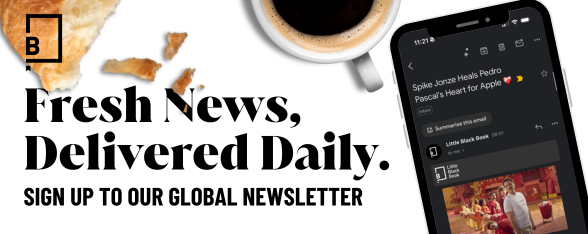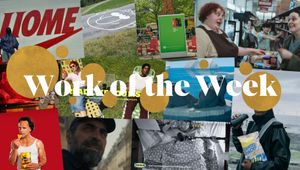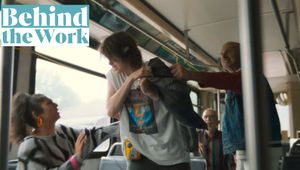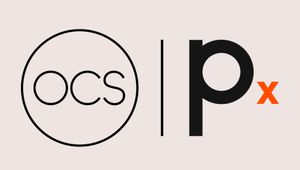
Brand Insight: SoundCloud

Much has been written about the changing face of the music industry and SoundCloud has played one of the more interesting parts in the tumultuous symphony of change. First established in 2008 as a simple way for producers to share sounds and feedback, it now reaches over 180 million people worldwide. By putting bedroom artists and the likes of Beyoncé and 50 Cent on an equal platform, and allowing anyone to provide feedback on specific moments within a track, it’s also strikingly democratic. And it’s not just musicians who are singing its praises – journalists, news outlets and, increasingly, brands are finding SoundCloud to be both a useful tool and a welcoming community. LBB’s Laura Swinton caught up with David Noël, VP Community and Community Evangelist to find out about the drivers behind SoundCloud’s success.
LBB> SoundCloud started in 2008 and you joined in May 2009 – how has SoundCloud evolved and how has your role evolved with it?
DN> Where do I start? Founders Alex [Ljung] and Eric [Wahlforss] both have a background in music production and sound design. They were frustrated that there was no easy and beautiful way to share a piece of sound across the web and that there was no simple way to provide feedback on particular moments in that sound. They decided that SoundCloud would be the Flickr for music.
In the beginning we did a lot of business development work. We had a one-man-team in London, who went to talk to record labels, management firms and PR agencies. His main goal was to get the people there excited about using SoundCloud.
The community emerged because of the way it was designed; we’d created the ‘Waveform’ that lets people interact within the track. It was unique and travelled across blogs and Facebook and really kept people intrigued. So the community-building aspect was baked into the product – which made my life a lot easier. I also think that the community element was one of the big drivers of growth and success in the early days. We just gave people a playground. My role at the time was about making sure that that playground was safe for people, that they felt welcome and that there were certain rules that were respected.
It just spiralled from there – field recorders, classical composers, podcasters and journalists started to get involved. The initial spark was a focus on music but we soon expanded into other areas. Whatever people were using it for, they were all motivated by the fact they had found a way to interact around a piece of sound without having to leave the site or track. The more people invested time into the network and building links with others, the more value they found in staying there and becoming friends with a lot of people, collaborating across borders and making SoundCloud the place where they hang out most. The product is the community, and it’s the people who use it every day who make it what it is.
My role today is very different compared to the early days. Back then, I did everything myself: there was a community building hat, a press hat, a social hat, an educational hat, a babysitter hat (to make sure people played by the rules), a customer services hat… There were so many different things that happened every day – but that’s now turned into a team of 17 people with their own specialisms.
LBB> In January 2012, SoundCloud had about 10 million registered users – by July it was 18 million and now it’s well over 30 million – why the massive jump in 2012?
DN> That’s for registered users and it’s not bad – though if you look at the number of people on the internet we still have some way to go. But if you look at non-registered users across every platform, across the network, we reach about 180 million people every month.
Thanks to the mobile apps we’re able to reach beyond our registered users (and they upload ten hours of sound every minute).
LBB> The mobile app seems to have been a real turning point for SoundCloud – why do you think that is?
DN> Absolutely. In our industry, any company that provides for large networks of engaged users like ours will all tell you the same thing – that mobile has been a great driver. The mobile apps have been fantastic. People who share their music through SoundCloud can access their sounds from any platform – just imagine how useful that is for an artist or band who meet an agent in a bar. It’s a real focus for us – we’re expanding our mobile team, hiring iOS developers, android developers.
LBB> Something that really struck me about SoundCloud was that while it’s an online entity there’s a real offline community too in the form of meet ups and hacking events. Was that something you actively organised or did it just spring up organically?
DN> In the early days, we saw that people wanted to meet each other in real life. They found value not only in SoundCloud as a product but in the people they were interacting with every day. They started to use our profile on meetup.com to get in touch with other users in their own cities, with the aim of learning about best practices and finding people to collaborate with. We’ve learned that the ability to take these online connections offline really added value.
Other things happened too. Early on we wanted SoundCloud to be an open platform where other people could come and build their own products. That made it appealing to an emerging group of product designers and software engineers around the world who liked SoundCloud and wanted to use it as a basis for their own projects; which was a really good recruiting ground. It became known in the development world as a place for potential employment, which, again, was really useful.
LBB> How is SoundCloud as a platform influencing the music industry?
DN> It’s hard for us to pin point. I think the industry as a whole has evolved in the past few years and a big part of the evolution has been driven by the change in technology. We think change is a good thing; technical innovation is always a driver for something better.
It’s been really nice to see how musicians, from unsigned artists to people like 50 Cent and Beyoncé, have used SoundCloud as their home for sharing their sounds. They’re also using new approaches to creating by tapping into this large community. Beyoncé invited users to remix ‘End of Time’, with one track being included on a single release; 50 Cent recorded some lyrics for other people to use; Snoop Dogg is personally invested in SoundCloud in terms of replying to the comments people make. He invests in the network and gets something back from it in terms of interesting songs he can release on his label. So it’s been really nice to see how the product has merged with the people who give it life and how that can influence change on a more macro level.
LBB> At what point in SoundCloud’s history did these big names first get on board?
DN> Early on the first bands that got really excited about us were ones like Sonic Youth in 2009. We saw Kylie Minogue joining early on, Moby was super early in 2009. We’ve seen high profile artists throughout the history of SoundCloud; the past year and a half has seen a far greater adoption.
LBB> Are there opportunities for brands to get involved?
DN> Certainly – brands are already using it. Gatwick Airport, for example, did something really cool. They teamed up with an audio book publisher to provide access to children’s books in the airport during their waiting times. It’s not a huge consumer brand but it’s interesting to see how they have adopted it. More and more brands see a value in using sound to connect with their consumers. I see a lot of potential there for the future; so far it hasn’t been a huge focus because we’ve been concentrating on continuing to improve the product and servicing our existing user base. It’s certainly something to look out for in the future.
LBB> In terms of branding, how would you characterise the personality of SoundCloud?
DN> For me, personally, there’s an edginess to it. It’s open, it’s personal, it’s human; it’s accessible everywhere and to everyone. It’s refreshing, it’s innovative and it’s global.
LBB> Before working for SoundCloud, I understand you had your own experience of working in the music industry?
DN> Yes. I’m a college dropout. I went to school in Belgium; I was a bad student but I loved learning. I escaped Belgium, went to Germany and teamed up with two of my friends to set up a record label. We licensed records from the US to distribute in Europe and did some tour management for those American bands. This was really my entry point into the industry – it was very much part of the independent scene. From there I was jumping on opportunities that seemed right at the time. I ended up in tech in 2006 and got involved in a start-up which failed magnificently. But I learned a lot that I could turn into positive lessons to bring to SoundCloud.
LBB> And how do you think being involved in music at that grass roots, independent level has helped you understand and empathise within the community that uses SoundCloud?
DN> It all goes back to this deep passion I have for the people who use SoundCloud and how they connect with one another. I get as excited about a parent recording their child’s first words as I do about Beyoncé getting thousands of remixes for her single. I’m interested in questions like who are you as a person, what are you trying to achieve and how do you participate in the network? How do you stay motivated to create more? We’ve got such a lot of no-name creators who have gone from three chords on a guitar to 30,000 followers, being connected to people all over the world. When you ask them why they’re here, they say it’s really changed their lives and that they’d never considered themselves musicians before, but having all these connections really keeps them motivated to keep writing songs. Going back to your question, that’s what it’s all about. It keeps you really humble and you appreciate the fact that you’re able to work on something that has an impact on people’s everyday lives.
LBB> What do you think 2013 holds for SoundCloud?
DN> We’re getting really excited about seeing how the newest version of SoundCloud, which we launched at the end of last year, develops. We’ve seen impressive numbers in terms of engagement, people coming back and using it, and new users. Creators are tapping into a growing audience and that accessibility is a really important currency for them. We want to support that by making it easier for people to discover things. We’re excited about mobile, growth… and of course there’s a few things we’ve got planned that we can’t talk about yet!















